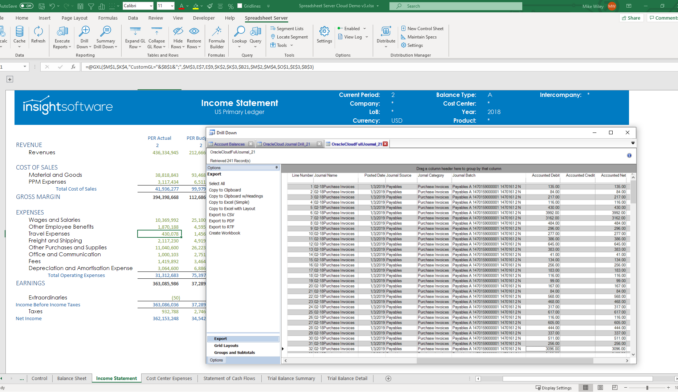Q&A with Jack Sweeney, Executive Producer and Host of the CFO Thought Leader Podcast
Jack Sweeney is the Executive Producer and Host of the CFO Thought Leader podcast, a weekly conversation with some of today’s leading CFOs. Jack recently recorded the 500th episode of the podcast, which offers a wide-ranging perspective into the issues on the minds of finance executives. We spoke with Jack about what he’s learned from the professionals on the front lines of finance.
This interview has been edited and condensed.
Your podcast often explores the changing role of the CFO. Can you tell us about that transformation?
It began in large enterprises, and now it’s sweeping through middle-market accounts. Whereas finance leaders in the past were primarily bookkeepers or accountants, now they need to play a more strategic role. These discussions began in the 1990s with thought leaders like Jack Welch at GE. He was one of several senior executives trying to reposition finance to be more strategic. As the role of the CFO grew, it meant they were responsible for areas outside of just finance, sales, and marketing, for example. CFOs began to provide a line of sight into the numbers for leaders throughout the organization.
What parts of the business strategy are CFOs now responsible for?
In the wake of the recession, CFOs were primarily involved with downsizing and thoughtfully making cuts. But after the economy rebounded, the focus switched to growth. CFOs took that to heart, and after realizing they had new clout within the organization, they began looking for ways to add value.
We have seen some interesting examples of this from CFOs at tech companies with a subscription model like SAAS (software-as-a-service). These CFOs are playing an exciting role in developing tools to measure the customer experience, which is not what finance was set up to do originally. CFOs have discovered that the closer you get to the customer, the more you’re able to drive growth. I think we’ll see that evolution continue to companies outside SAAS.
In addition to have a strategic-thinking CFO, what sorts of tools or mindsets do you think finance departments need to be successful?
I think the timing of my podcast was fortunate because it gave CFOs a chance to share their professional narratives. Communication is an essential skill that I think a lot of CFOs lack. It’s typically been up to the CEO to be the great communicator, but now that CFOs are building relationships across the organization, they need to be approachable. Approachable wasn’t something they needed to be 20 or 30 years ago.
Do you think technology has a role to play in helping CFOs communicate with more stakeholders inside the company?
To be a strategic CFO today is about creating visibility across the organization and identifying the areas of the business that need to be measured. Most organizations will tell you they have too much data and don’t know how to extract the insights, so it falls on the CFO to use their analytical skills to create that value. The fact that there are a lot of non-financial measures entering the realm of finance, metrics that are not just about money, means it’s up to the CFO and the whole finance team to present data and insights to other stakeholders in a way that’s valuable to them.
Are CFOs working closely with IT department to find and distribute data?
With the advent of cloud technologies, you’re mostly finding CFOs who take it upon themselves to learn new technologies. And when it comes to the area of selecting new technologies, I’ve found that IT is there to offer advice and guidance, but it’s up to the finance department to decide what technology they need to fulfill their responsibilities.
What strategies are they using to select technologies and vendors?
Finance is known for studying things carefully and being able to weigh competing options, so they are often adept at finding the right technologies. But you will also hear about how CFOs base their selection on relationships; for instance, they go with the salesperson they like. Functionality is essential, but CFOs also look for trustworthy tech partners.
You’ve been speaking to CFOs for years now. What kinds of issues are they excited and anxious about?
As we’ve touched on, data is a big issue for CFOs. They’re wondering how others use data to understand the business and what metrics are beneficial to organizations broadly, not just in finance. They’re asking how they can share metrics within the organization to drive growth and improve the culture.
I think the Net Promoter Score is a great example. In many organizations, finance has taken control of this metric even though it’s not directly related to finance. They create awareness of it across the organization so everyone feels like they have a stake in the score. With the development of real-time dashboards, companies can now share metrics as frequently as they want, on an intranet, for example. Finding the best ways to get that information into everyone hands is on the minds of a lot of CFOs right now.
_____________________________
Are you interested in learning about how insightsoftware can help you streamline your financial reporting? Request a free demo today!








